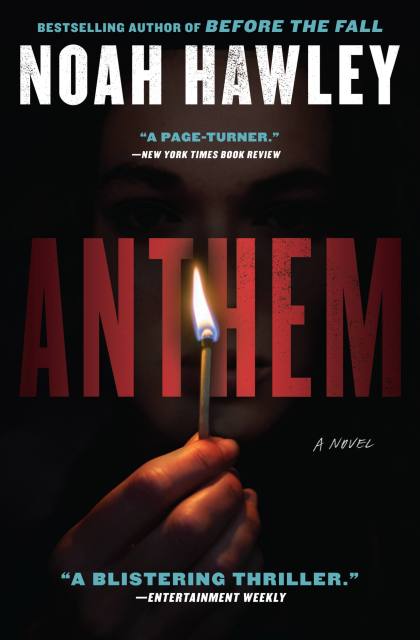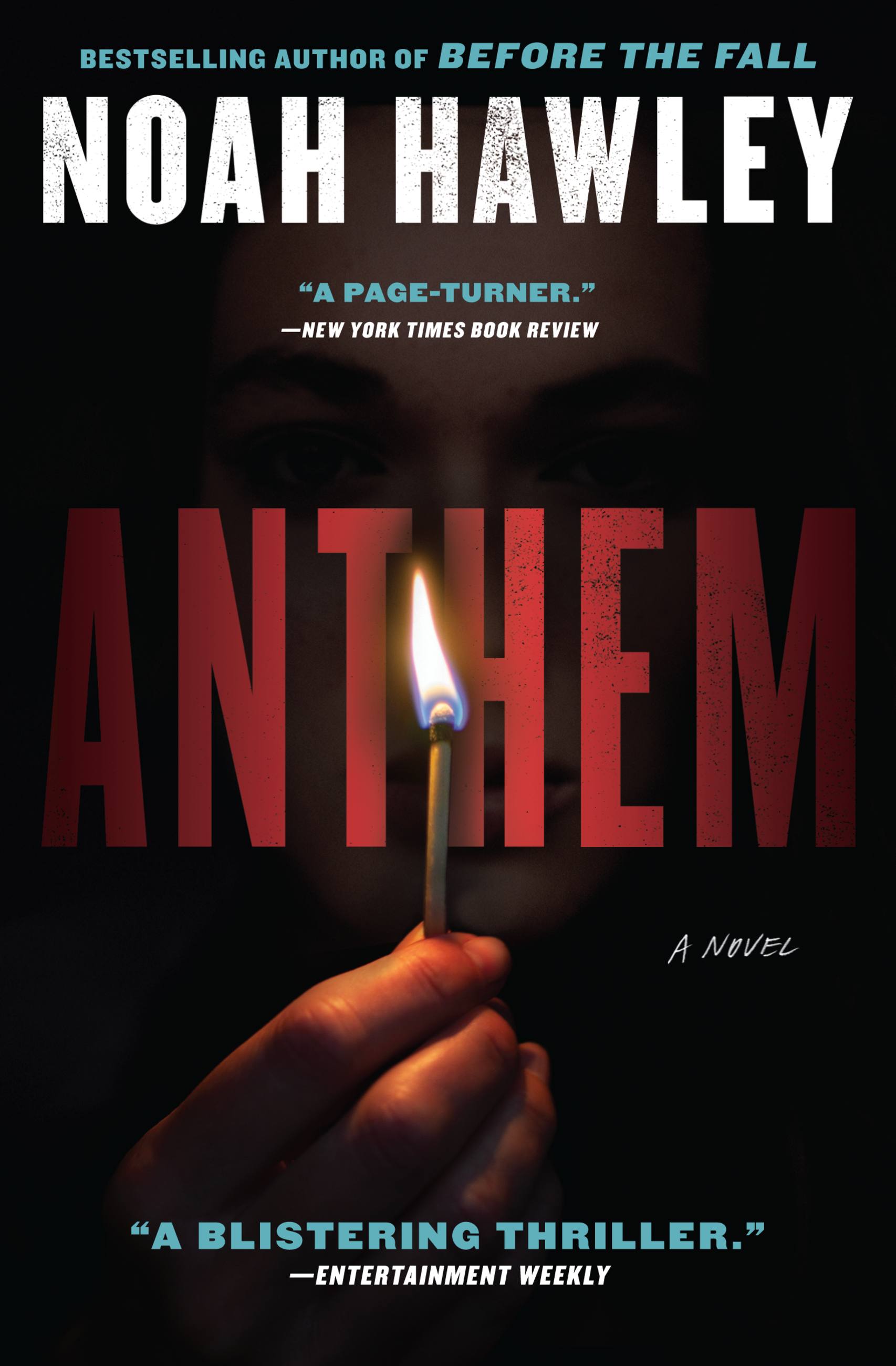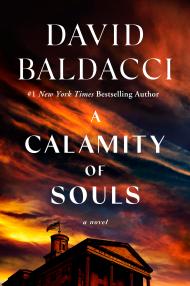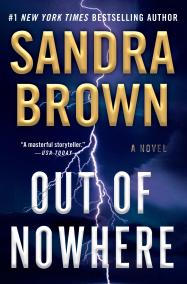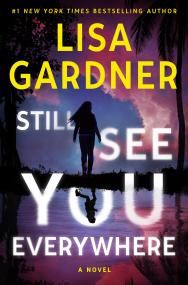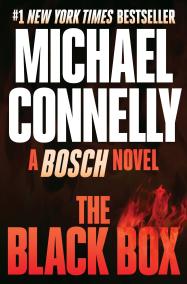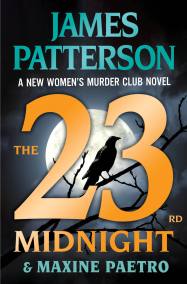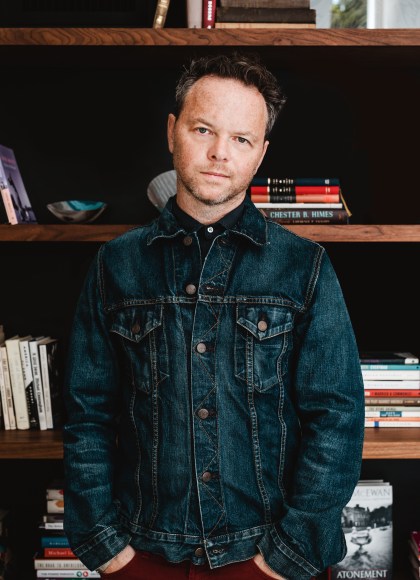Promotion
Use code MOM24 for 20% off site wide + free shipping over $45
Anthem
Contributors
By Noah Hawley
Formats and Prices
Price
$31.00Price
$39.00 CADFormat
Format:
This item is a preorder. Your payment method will be charged immediately, and the product is expected to ship on or around January 18, 2022. This date is subject to change due to shipping delays beyond our control.
Also available from:
“A blistering thriller that follows a group of teenagers on an adventure through an apocalyptic America much like our own.” ―Entertainment Weekly
Bestselling author of Before the Fall and Emmy Award-winning screenwriter Noah Hawley (FX’s Fargo) returns with a chilling and prophetic allegory of America as it is now and as it could be.
It begins with a Song…
In a country divided by pandemic, climate change, and incendiary rhetoric, a new plague infects American teens via social media: a contagious new meme spreading chaos and fear. Desperate parents look for something, anything to stop the madness. At the Float Anxiety Abasement Center, in a suburb of Chicago, Simon Oliver is trying to recover from his sister’s tragic passing. He breaks out to join a woman named Louise and a man called the Prophet on a quest as urgent as it is enigmatic. Who lies at the end of the road? A man known as the Wizard, whose past encounter with Louise sparked her own collapse. Their quest becomes a rescue mission as those most in danger race to save one life – and the country’s future.
Anthem is rich with unforgettably vivid characters, as fast and bright as pop cinema. Noah Hawley takes readers along for a leap into the idiosyncratic pulse of the American heart, written with the playfulness, biting wit, literary power, and foresight that have made him one of our most essential writers.
Genre:
-
“Hawley taps into our existential anxiety—and transforms it into a hefty page turner that’s equal parts horrific, catastrophic and, at times, strangely entertaining.”New York Times Book Review
-
“Hawley the fiction writer is at his best when pitching his taut setup and its well-drawn cast of characters.”USA Today
-
“A blistering thriller that follows a group of teenagers on an adventure through an apocalyptic America much like our own.”Entertainment Weekly
-
“Terrifying, expertly crafted literary thriller.”Oprah Daily, “The 50 Most Anticipated Books of 2022”
-
“Hawley creates an all-too-plausible dystopia rendered believable through matter-of-fact prose. [He] makes this sing by combining the social commentary of a Margaret Atwood novel with the horrors of a Stephen King book.”Publisher’s Weekly (Starred Review)
-
“The plot-rich, cinematic story moves swiftly and compellingly, exciting reader interest and empathy. Anthem is truly an epic adventure.”Booklist (Starred Review)
-
"[ANTHEM is] perhaps the first must-read novel of 2022, the kind of book that you’ll be urging your friends to pick up throughout the year”Book Reporter
-
“Hawley, more stoic in nature, speaks during pivotal moments, providing commentary that evokes an existential response. A rapid plot, dramatic characterizations, and a horrific but believable setting will excite thriller fans and have them questioning where today's society is headed.”Audio File
-
“A Vonnegutian story that is as timeless as a Grimm’s fairy tale, it is a leap into the idiosyncratic pulse of the American heart, written with the bravado, literary power, and feverish foresight.”Shereads
-
“An act of Hawley’s sorcery, and with his sharp dialogue and short, elegant chapters, Hawley propels this novel toward a form of hope.”The National Book Review
-
“Gripping, suspenseful… Noah Hawley is one of our most masterful multimedia storytellers.”Wisconsin Public Radio
-
“An emotionally stark and brilliant work of fiction… A must-read book.”San Francisco Book Review
-
PRAISE FOR BEFORE THE FALL:
-
"[A] terrific thriller . . . an irresistible mystery . . . a tale that's both an intriguing puzzle and a painful story of human loss."Washington Post
-
"Savvy and absorbing . . . cathartic . . . BEFORE THE FALL is about the gulf that separates perception and truth."Wall Street Journal
-
“A mesmerizing, surprise-jammed mystery that works purely on its own, character-driven terms.”New York Times
-
"A masterly blend of mystery, suspense, tragedy, and shameful media hype . . . a gritty tale of a man overwhelmed by unwelcome notoriety, with a stunning, thoroughly satisfying conclusion."Publishers Weekly (Starred Review)
-
"I started and finished BEFORE THE FALL in one day. That begins to tell you what kind of smart, compellingly dramatic read it is. So read it."James Patterson, #1 New York Times bestselling author
-
"This is one of the year's best suspense novels, a mesmerizing, surprise-jammed mystery that works purely on its own, character-driven terms . . . Mr. Hawley has made it very, very easy to race through his book in a state of breathless suspense."New York Times
-
"BEFORE THE FALL is a ravishing and riveting beauty of a thriller. It's also a deep exploration of desire, betrayal, creation, family, fate, mortality, and rebirth. It's one part Dennis Lehane, one part Dostoevsky. I was spellbound from first page to last; I haven't fully recovered yet."Michael Cunningham, Pulitzer Prize-winning author of The Hours
-
"Noah Hawley really knows how to keep a reader turning the pages, but there's more to the novel than suspense. On one hand, BEFORE THE FALL is a complex, compulsively readable thrill ride of a novel. On the other hand, it is an exploration of the human condition, a meditation on the vagaries of human nature, the dark side of celebrity, the nature of art, the power of hope and the danger of an unchecked media. The combination is a potent, gritty thriller that exposes the high cost of news as entertainment and the randomness of fate."Kristin Hannah, New York Times Book Review
-
"Imagine that Agatha Christie had set a closed-room mystery on an airplane and included Wall Street and entertainment executive types in her lineup of suspects. Now imagine that airplane crashing into the Atlantic before the story even gets going....Mr. Hawley, the expert TV showrunner, obviously had the skills to pull this off."New York Times
-
"A pulse-pounding story, grounded in humanity."Booklist (starred review)
-
"BEFORE THE FALL is an astonishing, character-driven tour-de-force. The story is a multi-layered, immersive examination of truth, relationships, and our unquenchable thirst for the media's immediate explanation of unfathomable tragedy."Karin Slaughter, #1 internationally bestselling author
-
"BEFORE THE FALL kicks ass. A surefire summer read."Justin Cronin, New York Times bestselling author of The Passage and City of Mirrors
-
"Like the successful screenwriter that he is, Hawley piles on enough intrigues and plot complications to keep you hooked."Kirkus
-
"This isn't just a good novel; it's a great one. I trusted no one in these pages, yet somehow cared about them all. BEFORE THE FALL brings a serrated edge to every character, every insight, and every wicked twist."Brad Meltzer, bestselling author of The President's Shadow
-
"Noah Hawley soon veers his highly entertaining novel into an insightful look at families, revenge and media intrusion...Hawley invests the same care with a soupcon of dark humor into BEFORE THE FALL as he does on the TV series 'Fargo'...superb and cleverly constructed."Associated Press
-
"A riveting beach read."People
-
"[A] page-turner."Vanity Fair
-
"A remarkable and memorable accomplishment by any standard...BEFORE THE FALL is brilliantly constructed and wonderfully told.... a tale that will haunt you long after you read the last page, even as you wish the narrative was twice as long, for all the right reasons."Book Reporter
-
"Abundant chills and thrills...Noah Hawley's novel grabs you by the throat and won't let go...BEFORE THE FALL is storytelling at its best, as Hawley presents a range of diverse characters with rich histories... Seeds of doubt are cast in what is sure to be the summer book you won't want to miss."The Missourian
-
"In the hands of a writer like Noah Hawley, who knows how to build tension from mundane moments, it is a remarkable thriller that most readers will find difficult to put down...it moves toward a breathless ending."The Washington Times
-
"A thoughtful and compelling page-turner....Hawley's writing is taut and clear, his characters richly developed...Readers may be moved to stand up and cheer."New York Journal of Books
-
"A complex exploration of human nature in an age of celebrity."Pittsburgh Post-Gazette
-
"Won [our] hearts and minds...it will be the big talker of the summer."New York Post, "Summer's Hottest Reads"
-
"[The] thriller of the summer."The Baltimore Sun
-
"The crash and the flashbacks recall Lost and Thornton Wilder's Pulitzer-winning novel, The Bridge Over San Luis Rey, and Scott's travails are the lot of every hero in a conspiratorial thriller going back to The 39 Steps."Slate
-
"This is one of the year's best suspense novels, a mesmerizing, surprise-jammed mystery that works purely on its own, character-driven terms....Mr. Hawley has made it very, very easy to race through his book in a state of breathless suspense."Janet Maslin, New York Times
-
"BEFORE THE FALL is a ravishing and riveting beauty of a thriller. It's also a deep exploration of desire, betrayal, creation, family, fate, mortality, and rebirth. It's one part Dennis Lehane, one part Dostoevsky. I was spellbound from first page to last; I haven't fully recovered yet."Michael Cunningham, Pulitzer Prize-winning author of The Hours
-
"BEFORE THE FALL will seize you on the first page and never let you go, as you follow the story of a plane crash and the complicated and confusing investigation about why it happened."Vanity Fair, "The 5 Must-Read Books for the Last Five Weeks of Summer"
-
"Noah Hawley really knows how to keep a reader turning the pages, but there's more to the novel than suspense. On one hand, BEFORE THE FALL is a complex, compulsively readable thrill ride of a novel. On the other hand, it is an exploration of the human condition, a meditation on the vagaries of human nature, the dark side of celebrity, the nature of art, the power of hope and the danger of an unchecked media. The combination is a potent, gritty thriller that exposes the high cost of news as entertainment and the randomness of fate."Kristin Hannah, New York Times Book Review
-
"[A] terrific thriller...an irresistible mystery.. a tale that's both an intriguing puzzle and a painful story of human loss."Patrick Anderson, Washington Post
-
"Excellent premise and clever plotting."Florida Times-Union
-
"A literary suspense novel with both a brain and a heart, Before the Fall is a searing examination of the nature of truth. With masterful character development and a well-sculpted plot line, Hawley takes us on a thrill ride of a story while raising vital questions about the role and responsibility of the media today."Powells, "1 of 10 books sent to President Elect Trump"
-
"Imagine that Agatha Christie had set a closed-room mystery on an airplane and included Wall Street and entertainment executive types in her lineup of suspects. Now imagine that airplane crashing into the Atlantic before the story even gets going....Mr. Hawley, the expert TV showrunner, obviously had the skills to pull this off."New York Times, "The Top Books of 2016"
-
"I started and finished BEFORE THE FALL in one day. That begins to tell you what kind of smart, compellingly dramatic read it is.James Patterson, #1 New York Times bestselling author and winner of the National Book Foundation's 2015 Literarian Award
So read it." -
"A big-brained why-, how-, and whodunit."GQ
-
"This fast-paced suspense novel by the creator of Fargo will keep you on the edge of your seat."People
-
"A masterly blend of mystery, suspense, tragedy, and shameful media hype...a gritty tale of a man overwhelmed by unwelcome notoriety, with a stunning, thoroughly satisfying conclusion."Publishers Weekly (starred review)
-
"A pulse-pounding story, grounded in humanity."Booklist (starred review)
-
"Brimming with three-dimensional characters, BEFORE THE FALL leads the reader down rabbit hole after rabbit hole in an electrifying mystery."PasteMagazine.com, "Best Novels of 2016"
-
"Noah Hawley's BEFORE THE FALL isn't a typical mystery. Perhaps that's why I couldn't put it down."TheAtlantic.com
-
"BEFORE THE FALL is an astonishing, character-driven tour-de-force. The story is a multi-layered, immersive examination of truth, relationships, and our unquenchable thirst for the media's immediate explanation of unfathomable tragedy."Karin Slaughter, #1 internationally bestselling author
-
"Savvy and absorbing... cathartic...BEFORE THE FALLis about the gulf that separates perception and truth, and the people who fall into it."Sam Sacks, Wall Street Journal
-
"A read-in-one-beach-day kind of book...A true page-turner, BEFORE THE FALL will leave you guessing until the final moments of the crash, and the final pages of the book."Bustle
- On Sale
- Jan 18, 2022
- Page Count
- 688 pages
- Publisher
- Grand Central Publishing
- ISBN-13
- 9781538710234
Newsletter Signup
By clicking ‘Sign Up,’ I acknowledge that I have read and agree to Hachette Book Group’s Privacy Policy and Terms of Use
